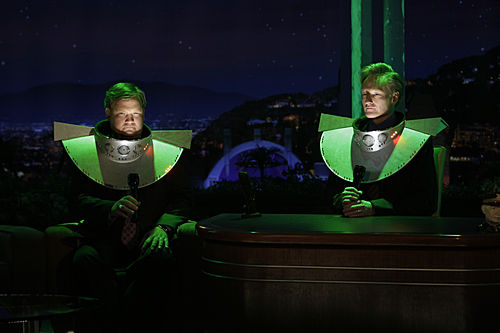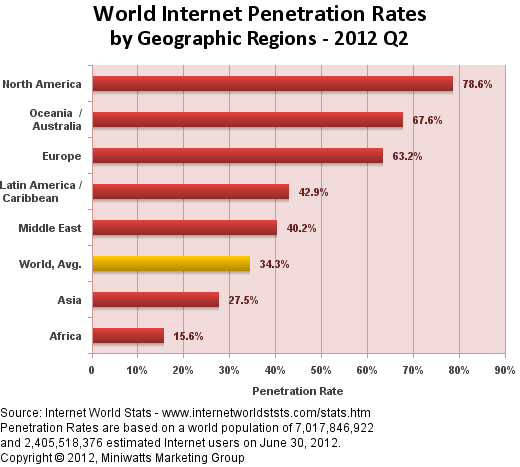Like Vygotsky would say, had he lived until the the mid 1990’s, I am entirely in the zone with this week’s readings on multiliteracies. It is hard not to view other theorists (especially the earnest NLSers) as a bit behind the curve. Yet as much as New London Group, Coiro, Knobel, Lankshear and Leu seem to be applying an operational theoretical framework, there are plenty of unanswered questions. The biggest one for me, which might have to leave until next term, is what have the digital literacies people been doing to differentiate from multiliteracies? I expected to find an answer to who they are in Geneviève Brisson’s proposal, but instead found a timely recapitulation of multiliteracies’ development up to a certain point. Brisson hits all the right “multi” buttons with her proposed research, yet there is also a slight disconnect between her framework and the case study itself, as most of the theorists mentioned in the former section do not entire reappear in the latter. In their introduction to Deleuzian literacy study, Masny and Cole (2012) present similar findings in their second chapter, pointing to the transcendental empiricism where virtual experiences in literacy are not tied to any one particular representation, as “[r]epresentation limits experience to the world as we know it – not to as a world that could be.” (p. 27) Perhaps Brisson picks up on the transcendental-ness by exploring what her case study students are becoming, rather than fitting into the model provided by a plethora of multiliterate scholars.

James Paul Gee in digital woodcut
Determining who the multiliterates are becomes a Herculean task, not impossible (especially as they frequently cite their own individual work throughout A Pedagogy of Multiliteracies) but nevertheless daunting to figure out who said what. The strongest voice for me, merely as I more familiar with his writing than most of the others, is James Paul Gee. It is understandable that his earlier work with in critical discourse analysis and NLS needs to be understood fully to appreciate where he comes from, yet I have always pictured him as more concerned with where literacy is going. I suspect there will be a lot more of him when I take Prof. Asselin’s Digital Literacy course next term. It is Gee’s voice, seconded by Gunther Kress, that worked out the design parts of New London Group’s Pedagogy and I am sure once I get a copy of Coiro et al.‘s Handbook (would make a nice Christmas gift, in case family or friends are searching this blog for hints!) they will have more to say about which voice says what. In any case, Gee and Kress have lots to say about how things are designed, as well as the redesign of what technology is available, or as Kress often mentions “to hand”. Taking video games as the obvious lead in to design, recent developments with mobile games (Angry Birds being one of the prime examples), gamers no longer need to read instruction booklets but learn as they play, sometimes with in-game tutorials or often with the option to replay the level once completed. Nearly every video game emphasizes the just-in-time learning, where the skilled needed to defeat the level boss get introduced throughout the same level, allowing the player to hone their skills before facing off with the end of level challenge, the test if you will. The redesign, however, is the most interesting feature of multiliteracies pedagogy as skilled “readers” are able to switch modes to make more personal meaning. Remixing is something that has been around for ages, but has experienced a boost in activity thanks to the availability of digital video, on-line file sharing (YouTube and other websites) and a receptive audience (Facebook’s Like button seems to be the new standard of assessment). It always impresses me how much the New London Group got right back in 1996, at least with connections to what would be possible in the year 2000 and beyond, for the available technology at least.

Andy & Conan predict the Year 2000
What most teachers struggle with is the pedagogical predictions of the New London Group, how much the classroom is changing due to the invasiveness of the Internet, therefore Julie Coiro and Donald Leu teamed up with Michele Knobel and Colin Lankshear to produce the Handbook of Research on New Literacies well into the first decade of the 2000’s. Their purpose seems to be to make multiliteracies operational for classroom teachers while also raising awareness of literacy’s newness (and multiplicity). Their prediction of nearly half the world’s population being on-line by the year 2012 fell a bit short with the latest census (dated July 30th, 2012) holding at 34.3% of the world having access to the Internet. The graph below shows the two most highly populated countries, Asia and Africa, are below the world average which can be argued from a statistician or even an economist’s point of view, but I would put forth that educators around the world may be partially responsible. For every BCTF conference or workshop I have been at (I work as a facilitator for such Teaching Teacher On Call (TTOC) workshops as “Reality 101: A day in the life of a TTOC” or “Classroom management”), there is always one or two teachers who insist that children have way too much screen time, and the best place for a student’s smartphone is in the locker, or not purchased from the store in the first place. While I admit there is a tendency for students to get off-task with games and other distractions on the web, it is something the teachers will have to push through, hopefully in a constructive way. It would make for a nice Boxing Day if I could start reading up on Gee’s response to Facer, Joiner, Stanton, Reid, Hull, & Kirk 2004 case study of the mobile game “Savannah”. Perhaps after the nine-hour marathon screening of The Hobbit: An Unexpected Journey Extended Version. The research project I had intended to write for this class would have been on mobile learning through virtual world games, but as this is a case study I am conducting in LLED 558 and more details will emerge from the research rather than frontloading the methodology with expectations based on the framework – as Brisson herself keeps the questions open until she has a better understanding of what is going on with her students under observation. Look forward to connecting to my LLED 558 final assignment when more of it is written.
 Mapping Multiple Literacies: An Introduction to Deleuzian Literacy Studies by Diana Masny
Mapping Multiple Literacies: An Introduction to Deleuzian Literacy Studies by Diana Masny

